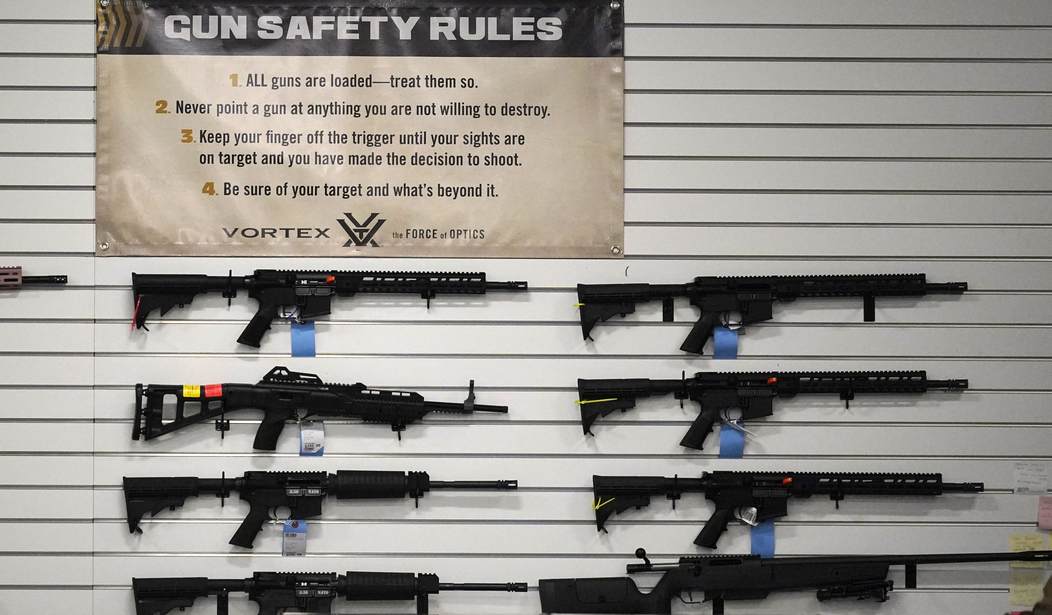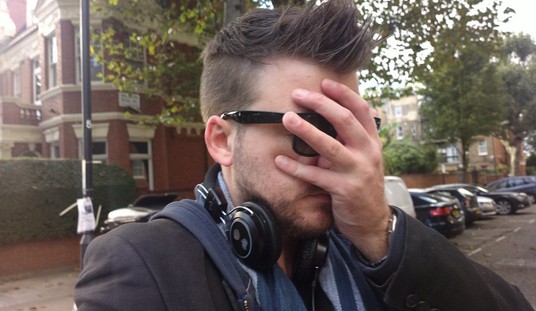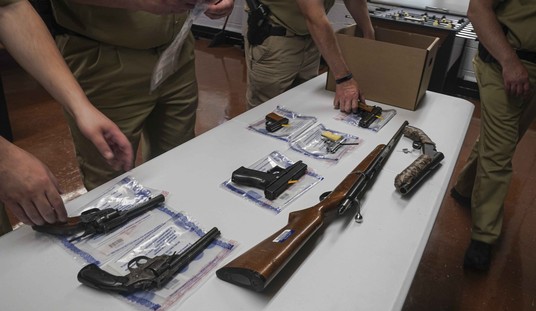Thursday was the final day of testimony in the challenge to Illinois's ban on so-called assault weapons and large capacity magazines, and U.S. District Judge Stephen McGlynn says he'll issue a ruling on the constitutionality of the bans within a month. But McGlynn also may have dropped a major hint about how he'll rule in his comments from the bench.
McGlynn was born in the St. Mary’s hospital across the street from the federal courthouse, near downtown East St. Louis, where the trial took place. He pulled up a black and white photo of East Broadway, the site of a Black neighborhood that was burned down by a white mob over 100 years ago. The riots raged on for a week, and left hundreds of Black residents dead and displaced thousands more.
McGlynn asked rhetorically, if the death toll would have been different had some of the Black residents been better armed.
“What if they had, not a lot, but…some of these weapons we’re talking about? Who knows,” McGlynn said.
McGlynn described those riots in great detail, and brought up the Tulsa Race Massacre of 1921 as well.
McGlynn wonders if they tried to make a stand ... poorly armed. Fleeing from mob, jumping in Mississippi, off bridges for certain death. What if they had some of these weapons? Who knows. Discusses Tulsa. Black neighborhoods, very nice. Same thing happened. Mob sets upon them.…
— Bishop On Air (@BishopOnAir) September 19, 2024
It's an excellent point, and one that hits at the heart of the issue. The state of Illinois maintains that AR-15s and other semi-automatic firearms are "weapons of war" with no legitimate self-defense purpose, but as McGlynn pointed out, there may come a time (as we've seen in the past) when citizens are less concerned about a lone home invader than mob violence.
McGlynn's questions are buttressed by the historical record. In his book Negroes and the Gun: The Black Tradition of Arms, Fordam University professor Nicholas Johnson quotes historian John Hope Franklin, who moved to Tulsa as a child in 1925, just a few years after the riots that killed hundreds and left more than a thousand homes and the Black business district in ruins.
He observed that the black community viewed the 1921 riot as a manifestation of their courage, and as a lesson about the proper response to racist aggression. Franklin recounted the conventional wisdom within the black community that "many more whites were killed during the riot than many whites were willing to admit."
... Black folk, said Franklin, did not see the death and destruction at Tulsa as an episode of black victimization. According to Franklin, they cast it as a story of classic heroism and marshalled it to profound practical effect.
The self-confidence of Tulsa's Negroes soared, their businesses prospered, their institutions flourished, and they simply had no fear of whites. After 1921, an altercation in Tulsa between a white person and a black person was not a racial incident, even if ther was a loss of life. It was just an incident. Such an attitude a great deal to do with eradicating the fear that a Negro boy growing up in Tulsa might have felt in the years following the riots.
There were many instances of individual acts of armed self-defense during the Tulsa Race Massacre. And in the aftermath of the East St. Louis riots that McGlynn detailed, activist Ferdinand Barnett (the husband of Ida B. Wells, who famously urged Blacks in the 1890s to purchase and possess Winchester repeating rifles, which were the "assault weapons" of the time) told a mass meeting of Black residents, "Get guns and put them in your homes. Protect yourselves. Let no black man permit a policeman to come in and 'get those guns'". Wells herself told the crowd that "Negroes everywhere [should] stand their ground and sell their lives as dearly as possible when attacked."
The guns and magazines banned by the state of Illinois are commonly owned for a variety of lawful purposes, including self-defense. And McGlynn seems to get that the simple ownership of these firearms may actually prevent or forestall acts of violence against a community as well as individuals. Even if that isn't always the case, a well-armed community is more likely to be able to successfully defend itself against an angry mob, and to impart such damage on their attackers that they mitigate the threat of future mob violence.
McGlynn has demonstrated throughout the litigation that he's well-versed in gun ownership and how firearms function, and given that he previously granted an injunction against PICA's gun and magazine ban I've assumed all along that he was at least leaning towards the plaintiffs' arguments. Based on his comments on Thursday, the judge appears to not only have a good command of the technical arguments presented by both sides but understands at a gut level the importance of armed self-defense when law and order break down... or even worse, when the law turns a blind eye to the unchecked rage of the mob.
With McGlynn set to rule within a month, the Supreme Court should have the opportunity to examine his decision while they decide whether to grant cert to a challenge to Maryland's ban on so-called assault weapons. I'm fairly confident that McGlynn is going to decide in favor of the plaintiffs, and his opinion will hopefully give SCOTUS another compelling reason to review Maryland's gun ban and strike it down as a violation of the Second Amendment.









Join the conversation as a VIP Member